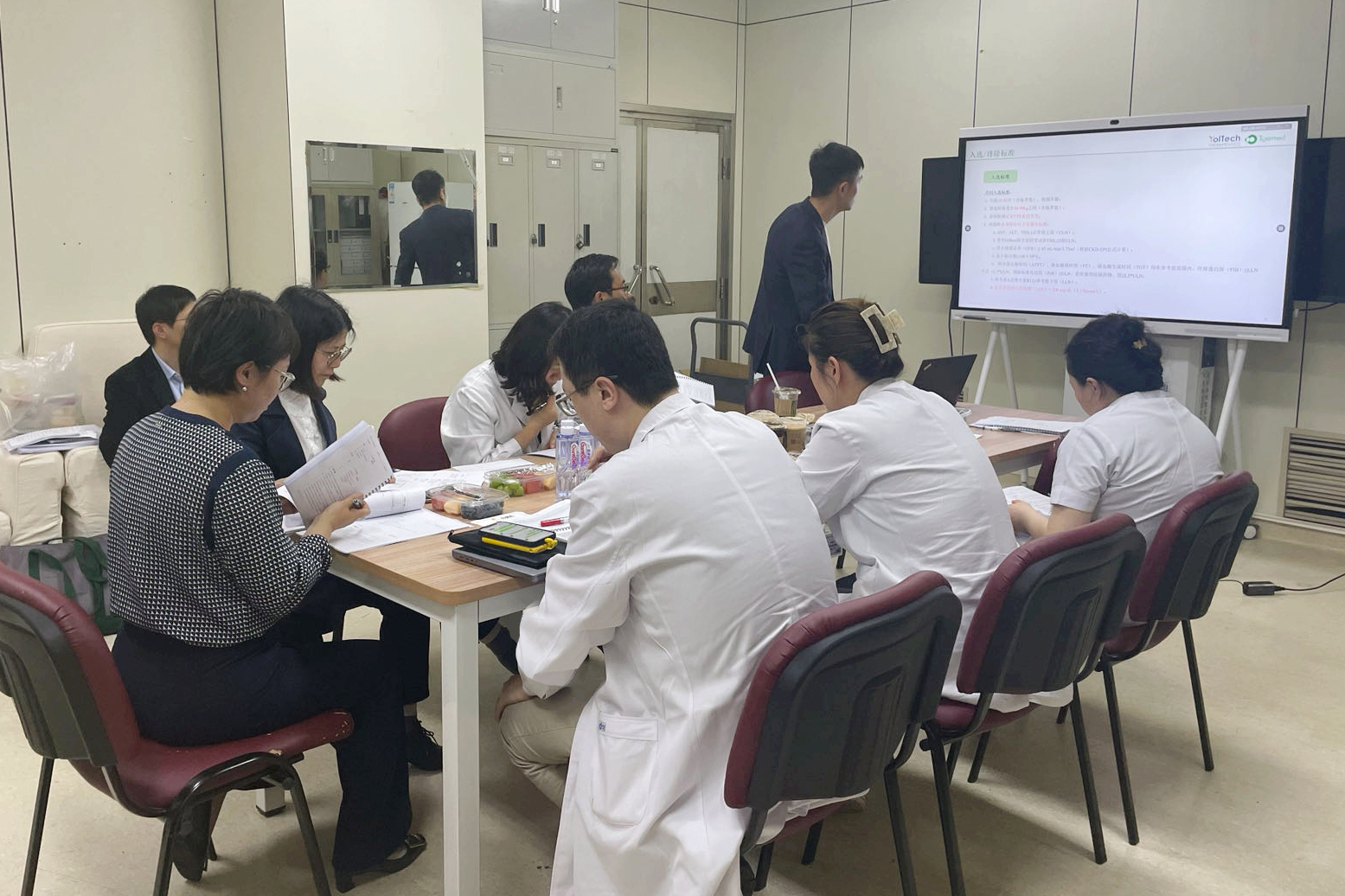Recently, Professor Zhang Shuyang, President of PUMCH, and Professor Tian Zhuang administered YOLT-201, China’s first domestically developed gene editing drug, to the first subject in the national multi-center clinical trial at the Clinical Pharmacology Center Ward Phase 1. With a single dose, the mutated gene can be edited, offering the possibility of lifelong cure. Mr. Cen (pseudonym), diagnosed with transthyretin amyloidosis (ATTR) five years ago, has been overjoyed to receive this “life-saving drug” just when he was nearing his predicted survival period.
Transthyretin amyloidosis (ATTR) is a fatal rare disease involving multiple systems. Its clinical manifestations are not specific enough, which very likely makes the disease underdiagnosed. Under factors such as genetic mutations and aging, transthyretin tetramers become much less stable and easily dissociate into monomers. These monomers may misfold and aggregate into amyloid fibrils, depositing in various organs and tissues throughout the body. Its clinical manifestations are mainly cardiomyopathy and polyneuropathy.
As the disease progresses, heart failure becomes one of the main causes of death for most patients. The average survival time for patients with polyneuropathy is about 6-12 years, while for those with cardiomyopathy, it is merely 2-4 years. Currently, the only therapies available are TTR kinetic stabilizers (such as tafamidis, the only approved drug in China) and drugs that inhibit TTR synthesis in the liver (none of which are approved in China). Therefore, ATTR patients face three major challenges: difficulty in diagnosis, limited treatment options, and poor overall prognosis.

▲Experts involved were at the research initiation meeting
YoITech Therapeutics, a Shanghai-based biotech company, has independently developed YOLT-201, China’s first in vivo gene editing therapeutic drug, using globally cutting-edge LNP (lipid nanoparticle)-based gene editing technology. The gene editing tool contained in this drug can achieve efficient and specific TTR target gene editing in the human liver, able to reduce TTR protein levels in the blood for life with a single dose. This novel method is a revolutionary breakthrough to the treatment of this disease. The IND (Investigational New Drug) application for YOLT-201 was approved by the Center for Drug Evaluation (CDE) of the National Medical Products Administration of China in April this year. The trial is led by Professor Zhang Shuyang of PUMCH, in collaboration with the First Affiliated Hospital of Zhejiang University School of Medicine and the Second Xiangya Hospital of Central South University. Mr. Cen became the first subject in the national multi-center clinical trial of YOLT-201.
Mr. Cen’s condition began with polyneuropathy in 2017 and was diagnosed at PUMCH in 2019. As the disease progressed, he developed cardiac involvement. Mr. Cen started using tafamidis in 2021, which slowed the disease progression. However, he gradually lost his ability to walk on his own and became wheelchair-bound, which greatly impacted his quality of life. The groundbreaking drug YOLT-201 provides a new treatment option for ATTR patients like Mr. Cen, bringing hope for them to live longer and live better.

▲The clinical pharmacology ward at PUMCH
As the National Guiding Center for Diagnosis and Care of Complex and Severe Disorders, PUMCH has long been committed to the diagnosis, treatment, teaching, and research of rare diseases. Under the leadership of Professor Zhang Shuyang and Professor Tian Zhuang, the Department of Cardiology took the lead in establishing a new paradigm for non-invasive diagnosis and treatment of ATTR cardiomyopathy, increasing the first-visit diagnosis rate by 80%. They also diligently advance new drug R&D and clinical trials, making significant strides in addressing the challenges of ATTR diagnosis and treatment. For instance, they led the first domestic post-marketing multi-center Phase IV clinical study of tafamidis, the first ATTR cardiomyopathy drug approved in China, and the national multi-center Phase III study of eplontersen, the antisense oligonucleotide drug. These trials provide efficacy and safety data for these drugs in Chinese ATTR cardiomyopathy patients. The two professors also led the Chinese sub-center research of the international multi-center Phase III clinical study of ALXN2220, an anti-ATTR monoclonal antibody, providing actual cases for establishing a “Chinese solution” for preventing and treating rare diseases.
Written by Zhang Lixi and Tian Zhuang
Pictures courtesy of the Department of Cardiology
